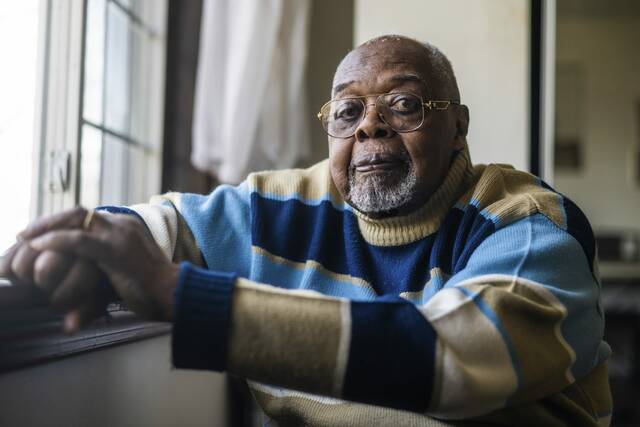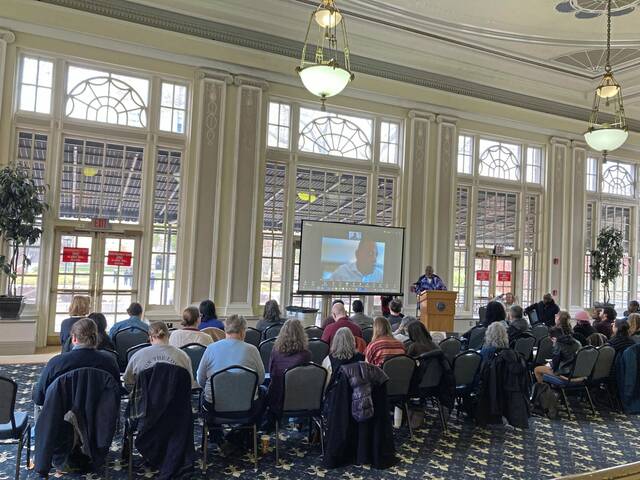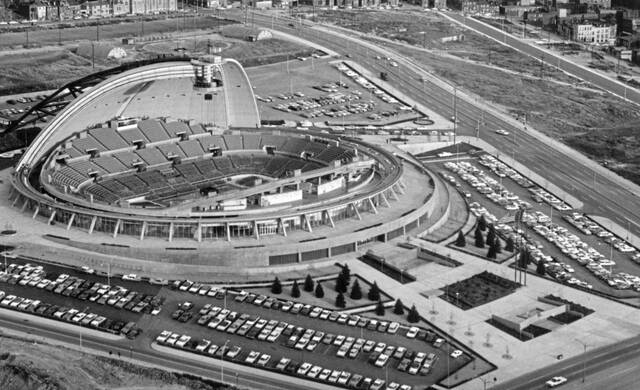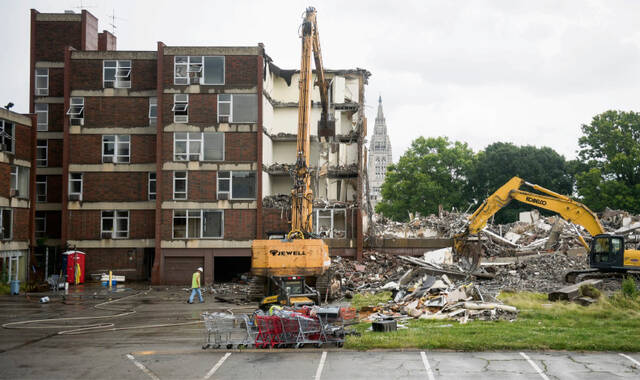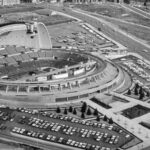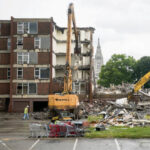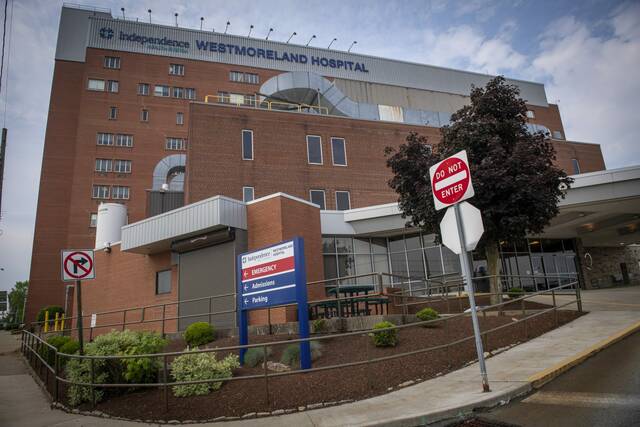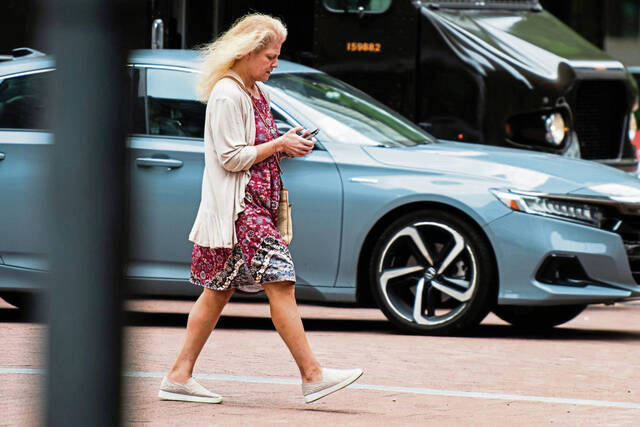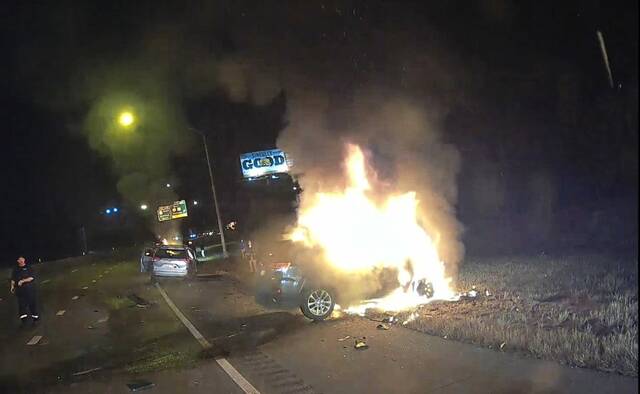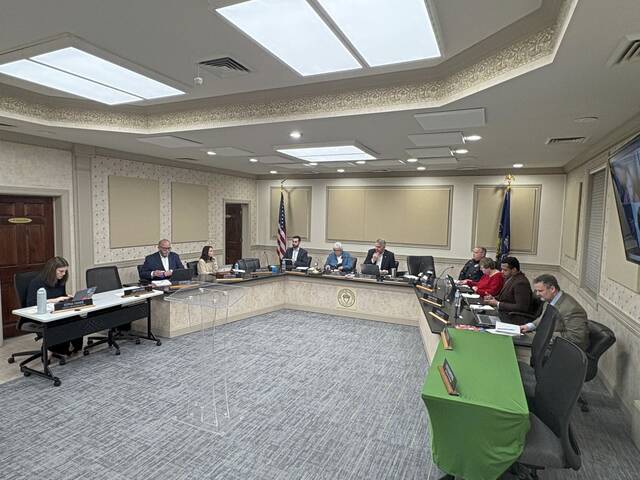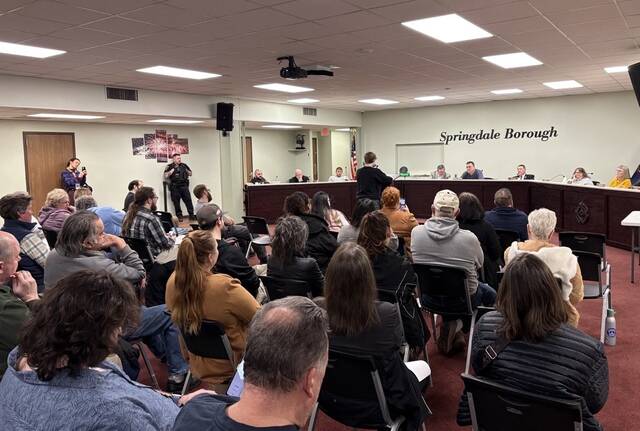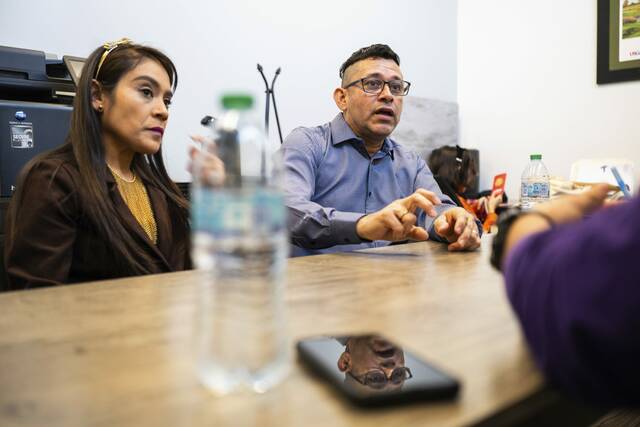Sala Udin said he was about 7 years old in 1950 when rumors began circulating that his family would be forced to move from their home on the corner of Fullerton and Epiphany streets in Pittsburgh’s Lower Hill District neighborhood.
Udin, a Pittsburgh Public Schools board member, on Friday recalled being pushed out to make way for the now-defunct Civic Arena.
“The question we had was: Move where? Who said we had to move? Why do we have to move? What’s going to happen to our friends? Where are we going to go to school? All those were questions that did not come with answers,” Udin said at the symposium “Race and Displacement in Pittsburgh,” held at the University of Pittsburgh on Friday. “As a child, I just couldn’t imagine why my neighborhood was going to be destroyed.”
Udin described it as a “frightening time” in his life. He was forced to move away from the only community he had known.
Udin was among thousands of residents — most of whom were Black — who were forced from their neighborhood so the new arena could be built. The project also forced out scores of businesses.
The Civic Arena, which opened in 1961, was torn down in 2012. Residents in the Hill District have since called for redevelopment focused on racial justice.
A 2007 agreement that gave the Pittsburgh Penguins rights to develop the property expired last month. Control of the Lower Hill District property returned to the Urban Redevelopment Authority and Sports & Exhibition Authority, but it remains unclear what will happen to the 29-acre site, most of which saw no development under the Penguins.
URA Executive Director Susheela Nemani-Stanger during a Thursday board meeting noted the many unanswered questions surrounding the future of the site.
“I acknowledge the heaviness of those questions and uncertainty,” Nemani-Stanger said, explaining URA leaders were working with city, county and SEA officials and community leaders to chart out next steps. “Our goal remains to ensure equitable development occurs at the site.”
Friday’s symposium also featured residents who were displaced from the Penn Plaza apartment complex in East Liberty a decade ago.
Penn Plaza is frequently cited as a key example of how gentrification forces people — particularly low-income minority residents — out of desirable neighborhoods.
“People came and just put notices on the doors in the hall and told us we were going to be evicted from our residence,” said O’Harold Hoots, who was among the last tenants to move out of Penn Plaza. “All of us were just shocked. We didn’t know what to do.”
Hoots said he had no desire to leave the East Liberty neighborhood he loved. He and his wife — who worked at the nearby Giant Eagle — had easy access to public transit, a slew of amenities and parks. They lived near friends, family and job opportunities.
“It was just such a great, great community,” he said. “There were so many people that we grew up with.”
But rents were skyrocketing in the increasingly popular neighborhood.
When Hoots and his family were pushed out of Penn Plaza, they couldn’t find another apartment nearby with comparable rent. They relocated to Oakland — though they would eventually move back to East Liberty.
“Nothing could ever replace where we came from,” Hoots said. “Losing community, the heart of your life — it’s really, really hard.”
Shawnta Reed, community democracy program coordinator at Fair Shake Environmental Legal Services, said many people who find themselves being uprooted from their communities wind up in neighborhoods facing disinvestment or plagued by violence or environmental hazards. Children lose support systems and mentors.
“We move them to areas where they feel unprotected and unseen,” she said.
Randall Taylor, a Pittsburgh housing advocate, was also forced out of Penn Plaza.
“It is extremely painful,” Taylor said.
Not everyone who was pushed out could afford to pay the first and last months’ rent and security deposit often required to secure a new lease. Many struggled with mental health challenges spurred by the stress of displacement.
The trio of speakers Friday who experienced displacement firsthand called on housing advocates gathered Friday to fight for policies that would protect against such situations in the future.
“It’s not going to stop in this city unless we are determined to make this a Pittsburgh everyone can enjoy,” Taylor said.


